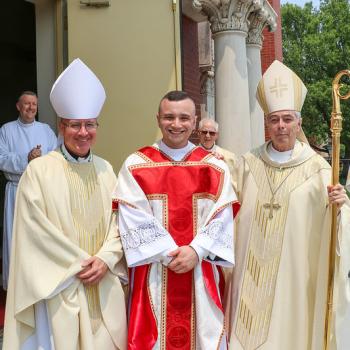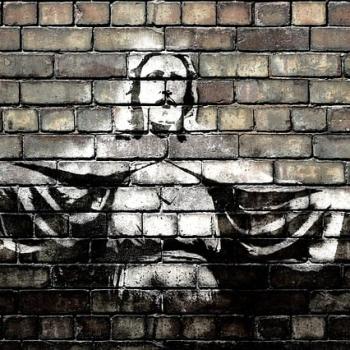What the Catholic faith believes about Mary is based on what it believes about Christ, and what it teaches about Mary illumines in turn its faith in Christ. (Catechism of the Catholic Church, 487)
There's an old cliché in Christian circles that "God does not call the equipped, He equips the called."In the case of Mary's Immaculate Conception, which the Catholic Church celebrates December 8th, that is, indeed the case.
The dogma of the Immaculate Conception was officially promulgated in 1854, but the seeds of it are found much earlier in a careful reading of scripture. And the concept was alive in the Church long before Pope Pius IX's papal bull declared it.
The most Blessed Virgin Mary was, from the first moment of her conception, by a singular grace and privilege of almighty God and by virtue of the merits of Jesus Christ, Savior of the human race, preserved immune from all stain of original sin.(Pius IX, Ineffabilis Deus, 1854)
This doctrine of Mary, as being conceived without sin, has scriptural underpinnings. Yet, it takes a very careful reading for Scripture to illuminate the truth of the Immaculate Conception. Fortunately, Catholicism presents this in light of 2000 years of biblical interpretation and theological reflection known as Sacred Tradition.
To begin, there is Mary's familiar story of the Annunciation in the first chapter of Luke's gospel. But let's focus on one portion of it.
And the angel . . . said unto her: "Hail, full of grace, the Lord is with thee: blessed art thou among women" (Lk. 1:28 Douay-Rheims version).
Note well that, curiously, the Angel does not address Mary by her name in this initial greeting. Instead, he uses the title "full of grace"and states that"the Lord is with thee: blessed art thou among women." This title, which Catholics have customarily prayed in the Ave Maria, or Hail Mary, describes her true nature.
Mary's person is full of grace. Mary is truly singled out from the rest of humanity in these phrases.
Notice also that Mary is addressed as "full of grace" even before the Angel announces God's message asking her to be the mother of the Savior who was foretold.
Once again, don't miss this distinction: At this early point in the conversation with the Angel, Mary has not yet been overshadowed by the Holy Spirit; still, she is addressed as "full of grace."It is not as if she will become full of grace sometime in the future if she takes on this mission of maternity. She has yet to receive that invitation; that comes in later in the text.
No. Mary is full of grace. Period.
This is her ontological nature. Her being -- her very existence -- is full of grace according to God's Word on the lips of the Angel.
This makes Mary unique. One-of-a-kind. Pure. Immaculate. "Blessed . . ."
Detractors sometimes argue: If Mary is human (and, of course, she is!), she should be subject to all the pitfalls of humanity, and subject to sin as the rest of us, right? Even St Paul wrote, they argue, "all have sinned and fall short of the glory of God" (Rom. 3:23).
By Paul's measure, would not Mary fall under that category "all"? Um, yes. But Mary's situation, as we saw in Luke 1:28, is truly exceptional.
Let's examine Paul's claim in its entirety.
For there is no distinction; since all have sinned and fall short of the glory of God, they are justified by his grace as a gift, through the redemption which is in Christ Jesus, whom God put forward as an expiation by his blood, to be received by faith (Rom. 3:22b-25).
Paul talks specifically about all of humanity falling short and being in need of justification and redemption by the gift of grace, through the shedding of Christ's blood. The grace of God has a power to eradicate sin. (Grace and sin cannot occupy the same space. And that is how sinful folks like us may even consider this possibility of being glorified One Day in heaven.)
Further, Paul writes:
Therefore as sin came into the world through one man and death through sin, and so death spread to all men because all men sinned . . . (Rom. 5:12).
Everyone inherits Original Sin and its consequences. How does this apply to Mary?
The Church is not saying that Mary, a human person, was not in need of redemption. No, Mary is indeed redeemed by the merits of her Son, Jesus Christ -- remarkably redeemed, in fact!
But what the Church is saying, with the doctrine of the Immaculate Conception, reflecting on Luke 1:28, is that Mary received the first fruits of Christ's saving grace. Mary was redeemed by the merits of her Son Jesus at Calvary -- who is God -- at her conception.





